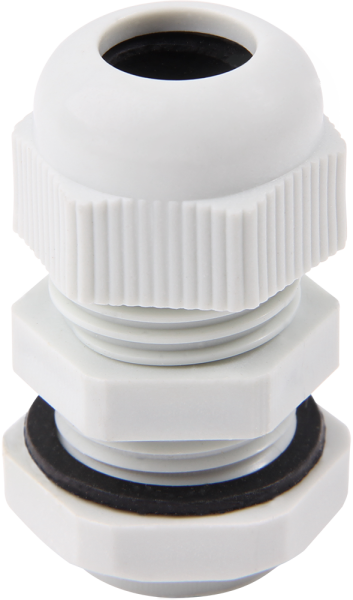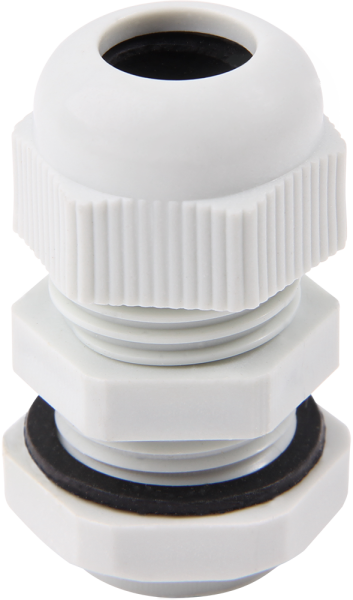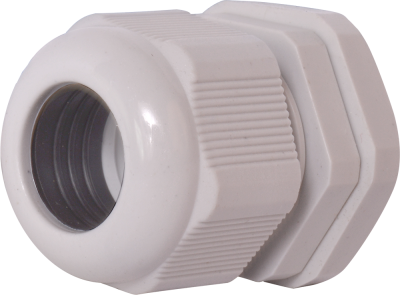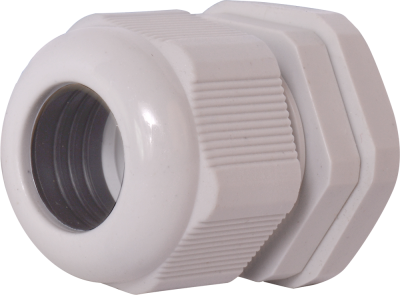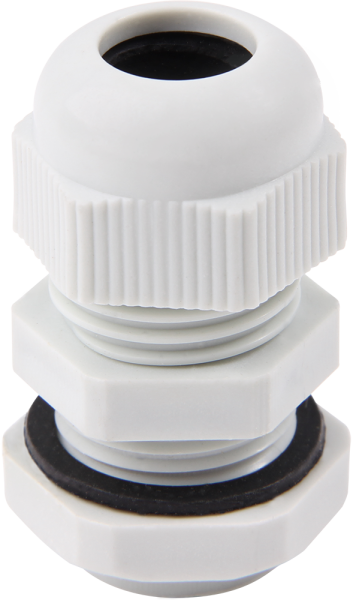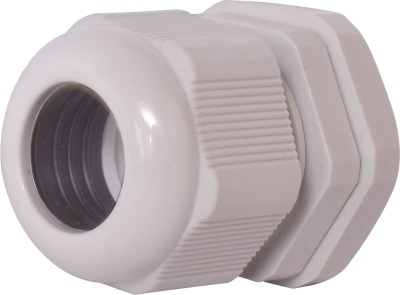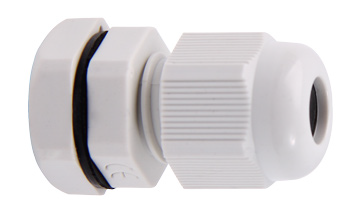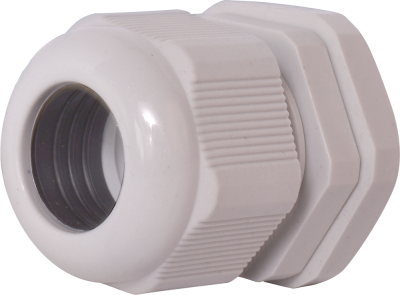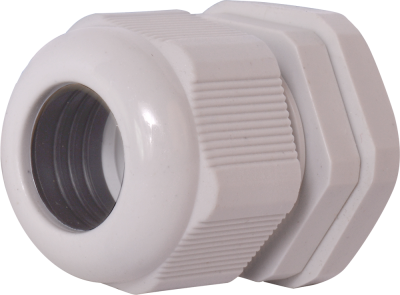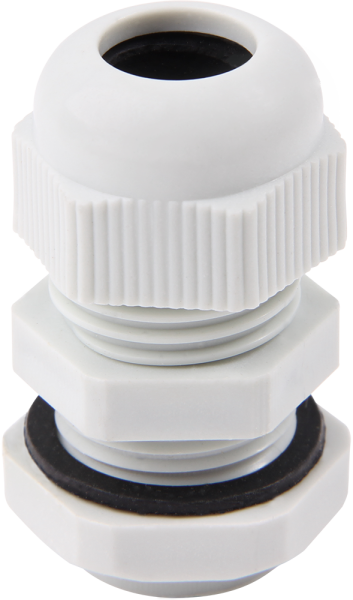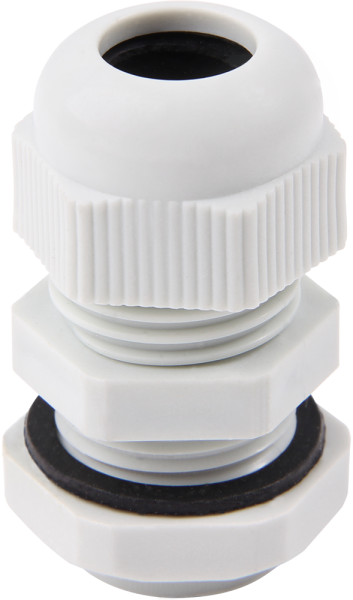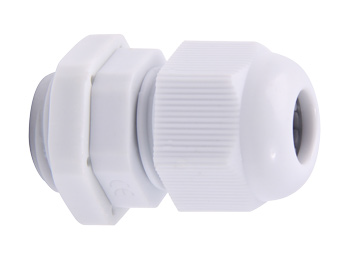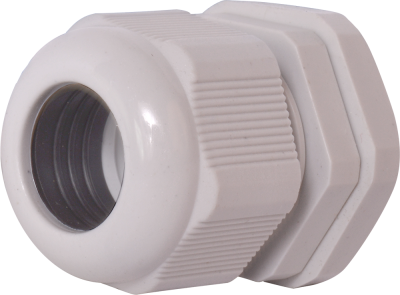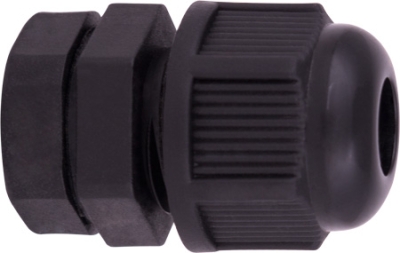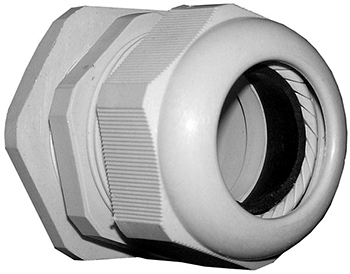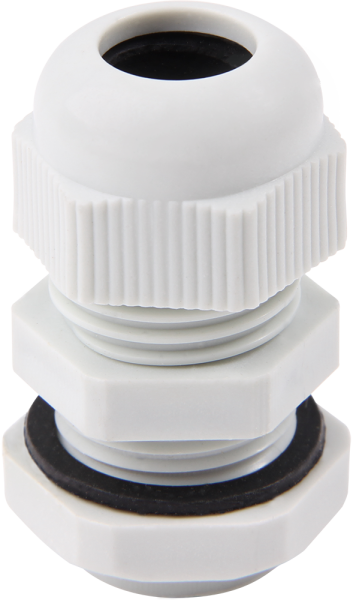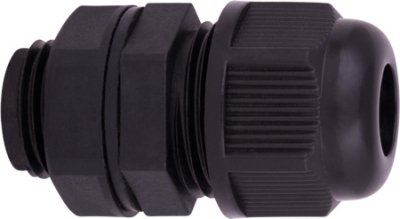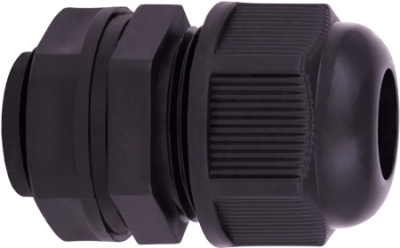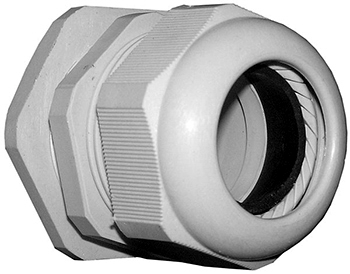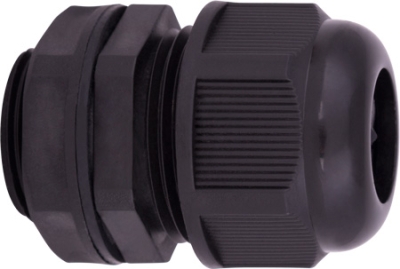Fittings
Plug and what is its purpose?
The purpose of cable glands is safe conduction of the cables through elements of electrical appliances so as to prevent the cables from breaking or twisting. The connector itself is a mechanical element that serves to securely connect a cable to a panel or other surface. This provides an easy and quick way to secure the free end of the cable without strain or bending.
Learn more
Types of sockets
Taking into account the most characteristic division from the point of view of mechanism and installation, cable glands can be divided into screw glands and plastic (often rubber) glands. They are made from different types of material, such as polyamide, rubber and metal alloys. Depending on the material, they have a different operating temperature: from -30o to +100oC. The cable in them is installed by pressing or through a membrane. The screw terminals relieve the cable and prevent it from breaking. They provide a reliable and durable attachment. This is the most important advantage, thanks to which screw fittings are the most reliable and commonly used fittings. Rubber grommets do not relieve the cable and thus do not guarantee reliable fastening. However, they are used wherever there is no danger of the cables being pulled, for example due to their location or the use of another method of protection. In addition, low cost is an important advantage of plastic components.
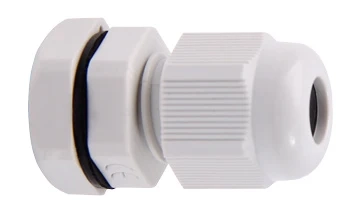
Spout body
This is the main part of the mechanical element called the spigot. It is usually made of several different materials, such as aluminum, steel, stainless steel or plastic. The body and housing of the spigots are responsible for holding all the other parts of the small device.
The nuts contained in the spigots are used to firmly and firmly tighten and secure the entire housing. They usually have a hexagonal shape as well as a hole in the middle. The connectors have several different types, which can also differ in the type of nuts, apart from the ones we have already explained to you above in the text.
Fittings usually have small rubber rings that are inserted into the body of the small mechanical elements. They are placed there to provide a more reliable place for the cables that will sit in them. The small rings cover and fix the cable very well, which further helps the strength of the entire cable route.
In the nozzles there is also a thin device in the form of a disc, which is made of plastic or metal. They have a hole in the middle to evenly distribute the load that the nut exerts on the unit. These small discs are used to prevent wear and corrosion processes. Thanks to this small addition to the spigots, vibrations can be reduced to almost zero.
What cables are the connectors suitable for and what are their standards?
Connectors find applications in almost all areas related to performing electrical installation activities. Connectors are universal inputs for different types of cables:
- telecommunication cables;
- power cables;
- installation cables;
- measuring cables;
- data cables.
The main standards for fittings are PG and metric (in millimeters).
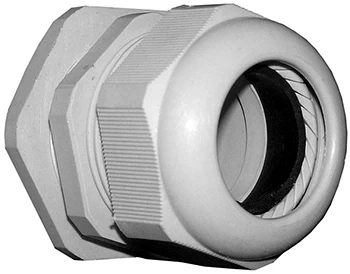
Choosing a cable gland (What we need to know before choosing the right gland)
When choosing a nozzle, it is worth paying attention to the working environment and operating conditions of the element. Precisely they require certain qualities necessary for trouble-free operation. Among them we can list:
- The material of the body of the spigot - it is decisive for the durability and service life of the element. The structure of the casing gives the elements characteristic properties of the given material. The material often also determines the color of the spigot, which is particularly important in the case of outdoor applications where UV resistance is important.
- The hermetic class IP of the cable gland - must not be lower than the hermetic class of the element to which the gland is mounted. Among the fittings offered in TME's offer, the most common components have IP68 protection class, ensuring dust resistance and resistance to continuous immersion in water.
The PG mark is a unit of measurement used mainly in electrical installations. Although it still functions and threads still have these markings, the metric measure is used globally and is more commonly used on threaded items. To choose the most suitable cable gland, it is worth measuring the outer diameter of the cable before purchase and then comparing with the attachment range of the individual models. In this way, we will have a guarantee of free passage through the element and its proper functioning It is worth noting that e.g. fittings with the same M20 thread can have different attachment ranges.
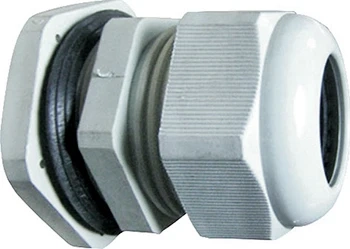
Installation of the spigot
The fittings are designed so that their installation in everyday life is quite simple. There are many types of the device, so you need to choose the right ones to match the external environment. Then you have to think about the threading of the spigots. Those of the PG type are the most common, although there are many other types as well. They can be installed using only their own thread, but a nut can also be used. This is a way to provide much more security in the electrical circuit. Some premises have special requirements for the use of spigots. Users can find a wide variety of appliances online. Everyone can find the device that perfectly matches the requirements and capabilities. They can buy them, both in hardware stores and online from stores like ours.
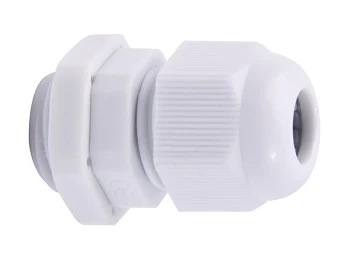
What fittings are available in the Enext store?
The Enext company is a direct importer and distributor of a wide range of PG standard fittings with sizes from PG7 to PG 63. With us you will find the fittings you need at affordable prices and of excellent quality. You can easily and quickly order them from the online store, relying on speedy delivery, or if you prefer, you can walk to the physical store or warehouse complex of the company Enext.
You can also browse any of the other categories in our product catalog.
Happy shopping!
Plug and what is its purpose?
Types of sockets
Spout body
What cables are the connectors suitable for and what are their standards?
Choosing a cable gland (What we need to know before choosing a cable gland)
Installation of the spigot
What fittings are available in the Enext store?
-
CONNECTOR E.PGL.STAND.16, WITH EXTENDED THREAD AND E.NEXT SEAL
Price excl. tax: €0.00 0.00лв.Price inc. tax: €0.00 0.00лв.
In stock
-
E.PGL.STAND.21 CONNECTOR, WITH EXTENDED THREAD AND E.NEXT SEAL
Price excl. tax: €0.00 0.00лв.Price inc. tax: €0.00 0.00лв.
In stock
-
CONNECTOR E.PG.STAND.7 E.NEXT
Price excl. tax: €0.08 0.16лв.Price inc. tax: €0.10 0.20лв.
In stock
-
CONNECTOR E.PG.STAND.9 E.NEXT
Price excl. tax: €0.10 0.20лв.Price inc. tax: €0.12 0.23лв.
In stock
-
E.PGL.STAND.7 CONNECTOR, WITH EXTENDED THREAD AND E.NEXT SEAL
Price excl. tax: €0.10 0.20лв.Price inc. tax: €0.12 0.23лв.
In stock
-
CONNECTOR E.PG.STAND.11 E.NEXT
Price excl. tax: €0.13 0.25лв.Price inc. tax: €0.16 0.31лв.
In stock
-
CONNECTOR E.MG.STAND.12 E.NEXT
Price excl. tax: €0.13 0.25лв.Price inc. tax: €0.16 0.31лв.
In stock
-
CONNECTOR E.PG.STAND.13.5 E.NEXT
Price excl. tax: €0.15 0.29лв.Price inc. tax: €0.18 0.35лв.
In stock
-
CONNECTOR E.PG.STAND.16 E.NEXT
Price excl. tax: €0.18 0.35лв.Price inc. tax: €0.22 0.43лв.
In stock
-
CONNECTOR E.PGL.STAND.11, WITH EXTENDED THREAD AND E.NEXT SEAL
Price excl. tax: €0.18 0.35лв.Price inc. tax: €0.22 0.43лв.
In stock
-
CONNECTOR E.PGL.STAND.13.5, WITH EXTENDED THREAD AND E.NEXT SEAL
Price excl. tax: €0.23 0.45лв.Price inc. tax: €0.28 0.55лв.
In stock
-
NUT E.MG.STAND.16 E.NEXT
Price excl. tax: €0.26 0.51лв.Price inc. tax: €0.31 0.61лв.
In stock
-
CONNECTOR E.PG.STAND.21 E.NEXT
Price excl. tax: €0.28 0.55лв.Price inc. tax: €0.34 0.66лв.
In stock
-
Waterproof fitting e.mg.stand.12, IP68, black E.NEXT
Price excl. tax: €0.33 0.65лв.Price inc. tax: €0.40 0.78лв.
In stock
-
CONNECTOR E.PG.STAND.29 E.NEXT
Price excl. tax: €0.47 0.92лв.Price inc. tax: €0.56 1.10лв.
In stock
-
CONNECTOR E.PGL.STAND.29, WITH EXTENDED THREAD AND E.NEXT SEAL
Price excl. tax: €0.56 1.10лв.Price inc. tax: €0.67 1.31лв.
In stock
-
Waterproof fitting e.mg.stand.16, IP68, black E.NEXT
Price excl. tax: €0.74 1.45лв.Price inc. tax: €0.89 1.74лв.
In stock
-
Waterproof connector e.mg.stand.20, IP68, black E.NEXT
Price excl. tax: €0.82 1.60лв.Price inc. tax: €0.98 1.92лв.
In stock
-
CONNECTOR E.PG.STAND.36 E.NEXT
Price excl. tax: €0.83 1.62лв.Price inc. tax: €1.00 1.96лв.
In stock
-
Waterproof fitting e.mg.stand.25, IP68, black E.NEXT
Price excl. tax: €0.84 1.64лв.Price inc. tax: €1.01 1.98лв.
In stock
Page 1 of 2

